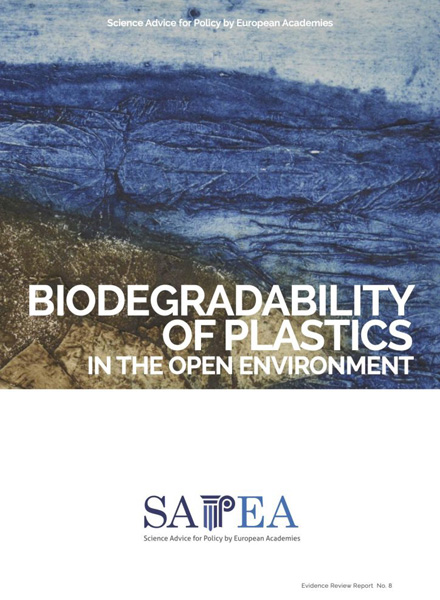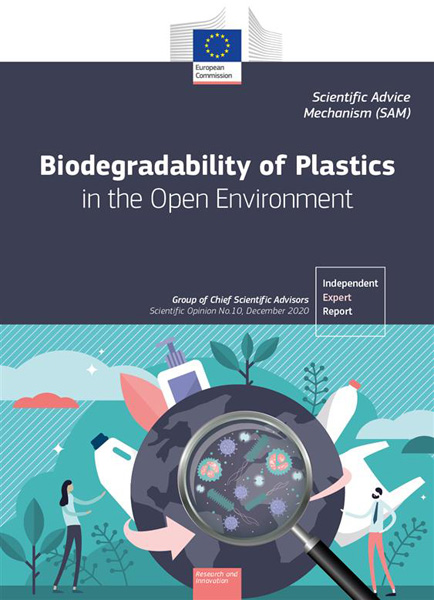Biodegrability in Plastic#
The SAPEA Evidence Review Report presents the latest scientific evidence on the biodegradability of plastics in the open environment.#
Academia Europaea Cardiff Knowledge Hub oversees completion of Evidence Review Report on Biodegradability of Plastics in the Open Environment.
oversees completion of Evidence Review Report on Biodegradability of Plastics in the Open Environment.
A major new Evidence Review Report entitled ‘Biodegradability of Plastics in the Open Environment’ has been published today by SAPEA. Academia Europaea led the coordination of the Evidence Review Report, with responsibility for management and delivery of the work given to the AE Cardiff Hub.
SAPEA (Science Advice for Policy by European Academies) was asked to produce this Evidence Review Report
(Science Advice for Policy by European Academies) was asked to produce this Evidence Review Report to inform the Scientific Opinion
to inform the Scientific Opinion of the European Commission’s Group of Chief Scientific Advisors
of the European Commission’s Group of Chief Scientific Advisors (GCSA).
(GCSA).
The report was presented to Chair of the Advisors, Professor Nicole Grobert, at the official handover event on 14th December and delivered to the Commissioner for Innovation, Research, Culture, Education and Youth Mariya Gabriel and Commissioner for Environment, Oceans and Fisheries, Virginijus Sinkevičius
and Commissioner for Environment, Oceans and Fisheries, Virginijus Sinkevičius .
.
President of Academia Europaea, Professor Sierd Cloetingh represented the SAPEA Board. Professor Cloetingh said:
This new SAPEA Evidence Review Report has been written by a group of world-leading experts nominated by academies across Europe, including Academia Europaea. The report concludes that biodegradable plastic has a role to play in reducing the accumulation of plastics in the environment. However, its role is limited to some specific applications. In other cases, including single-use packaging and plastic bags, it would be better to reduce the amount of plastic we use — or to re-use it, recycle it, or, where we can, compost it in industrial plants.
The group was chaired by Professor Ann-Christine Albertsson
 . With the first working group meeting taking place at the end of February and regular meetings held throughout the period of the pandemic, this was the first SAPEA review to be conducted entirely via virtual means. Despite the challenges, the report has been delivered on-time.
. With the first working group meeting taking place at the end of February and regular meetings held throughout the period of the pandemic, this was the first SAPEA review to be conducted entirely via virtual means. Despite the challenges, the report has been delivered on-time.
In the evidence review report, a working group of leading experts nominated by academies across Europe The Evidence Review Report highlights a number of key conclusions, including:
- Biodegradable plastics do have a specific role to play in reducing the accumulation of plastics in the environment but they are not a ‘silver bullet’ for solving the problem of plastics pollution
- Biodegradable plastics must be considered on a case-by-case basis, with thorough and rigorous testing, and clear information to consumers and business
Following the launch of the report in December, there will be an extensive campaign of promotion and outreach throughout 2021.
Biodegradability of Plastics Evidence Review Report

Group of Chief Scientific Advisors’ Scientific Opinion





